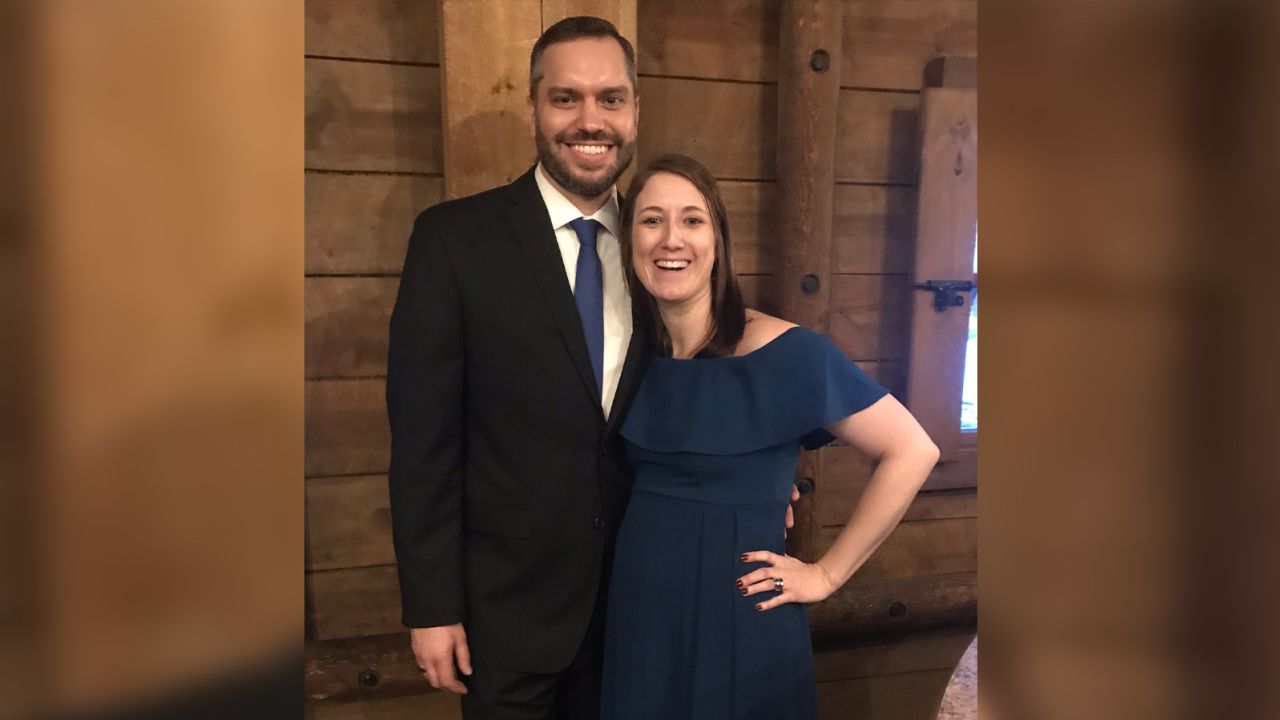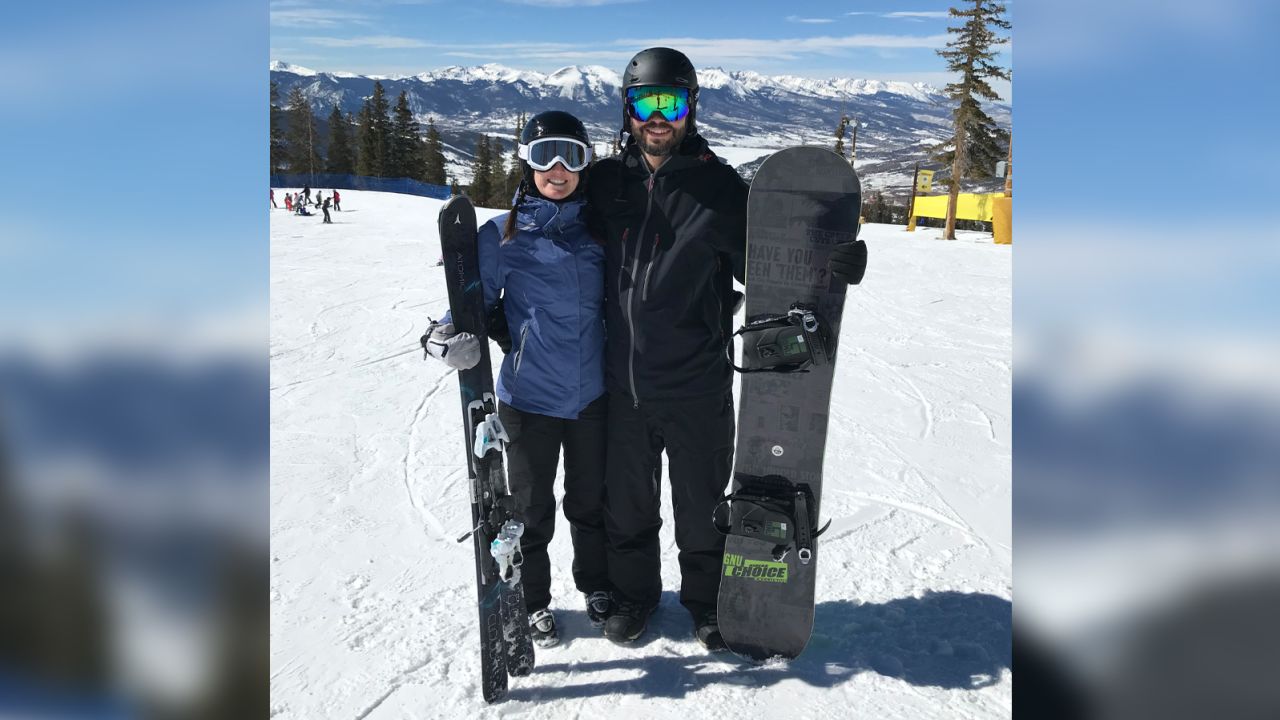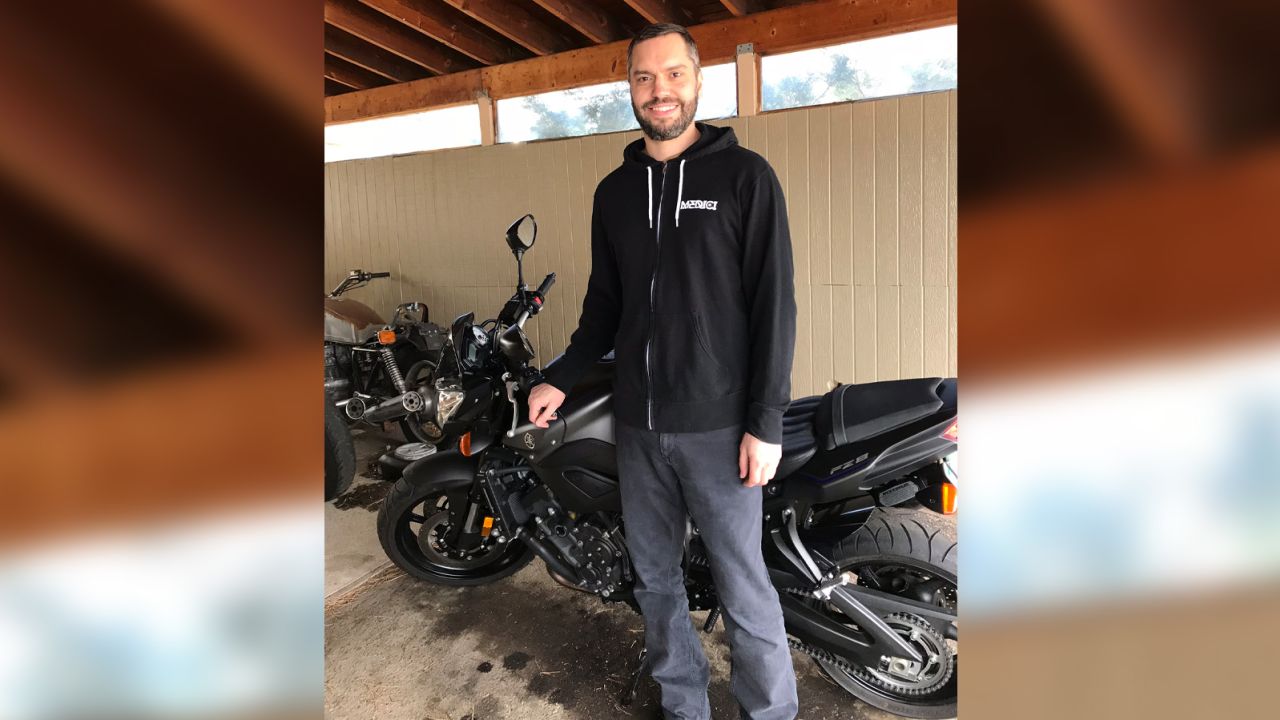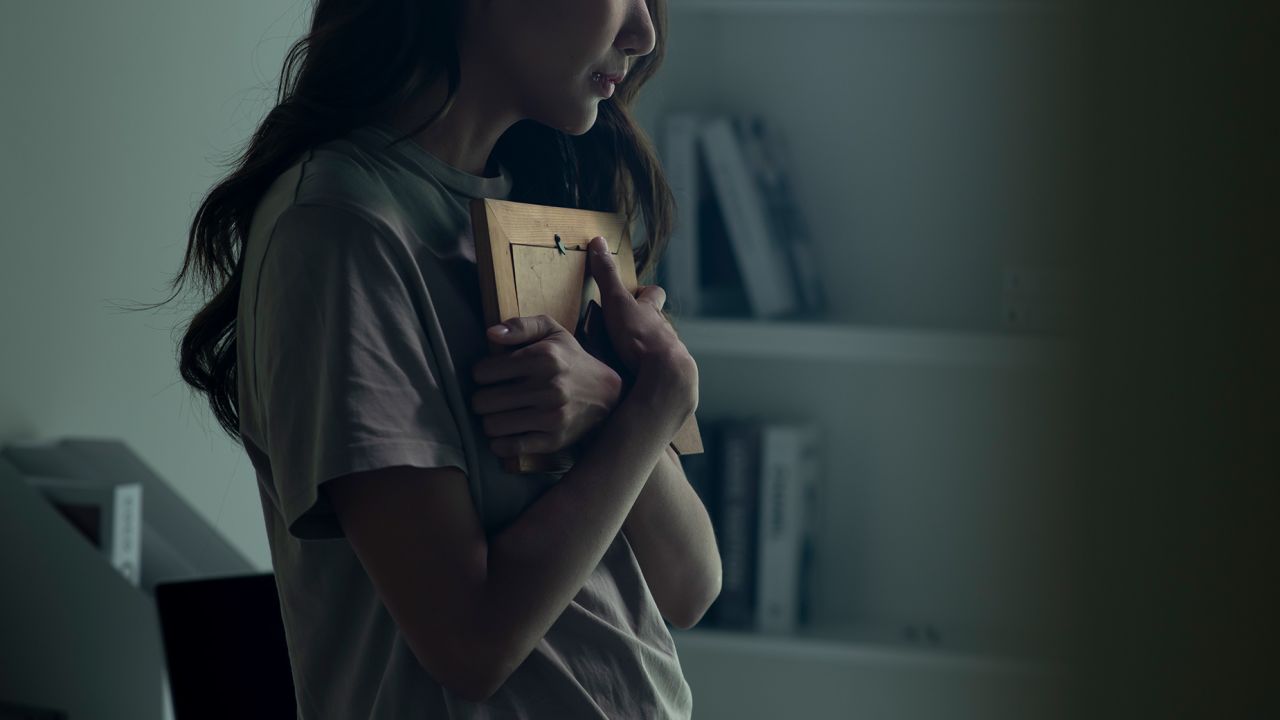Editor’s note: If you or someone you know is struggling with suicidal thoughts or mental health matters, please call the 988 Suicide & Crisis Lifeline by dialing 988 to connect with a trained counselor, or visit the 988 Lifeline website.
When Alexandra and Shawn Wyman met in December 2017, they said they instantly felt a “soul connection.”
Two months later they were engaged, and they married in August 2018. In October, Alexandra learned she was pregnant, giving birth to a baby boy in July 2019.
“We were in our late 30s at the time,” said Alexandra, who is now 41. “You have those ideas of what a successful life looks like, and so we both felt like we were finally checking off those boxes.”

Then the coronavirus pandemic hit as the couple was navigating how to juggle a baby, home and marriage, on top of discord with extended family — a blend of stressors that put unexpected strain on their generally happy life.
Shawn was a present, hardworking and fun partner and father, Alexandra said. He had served in the US Navy and enjoyed Sunday football and barbecues. Alexandra felt safe talking to him about anything, she said, and he made their son laugh so hard by singing and dancing.
“He could make me laugh like no other, and he was such a good storyteller,” she said. “At the same time, some of his stressors and some of the experiences he had as a kid were being triggered or activated (during the pandemic).”

Shawn also struggled with self-doubt. He “never felt like he was as good of a father as he (really) was,” Alexandra said.
Shawn’s distress came to a head on August 18, 2020, and he agreed to start therapy since his stress was building up. Over dinner two days later, the couple fantasized about adventures they would embark on once the pandemic ended. The next evening, he attended a friend’s birthday party and unexpectedly didn’t return home until morning.
When they argued over this, Shawn seemed “really off,” she said. “I was waiting to go take my son for a walk. He and I left, and then I got the first of the goodbye texts.”
That first text sent around 8:30 a.m. by Shawn, who had left home, spurred Alexandra, other loved ones and police to try to find him. Alexandra repeatedly tried to get in touch with Shawn, who didn’t text again until around 1:30 p.m. Then that soul connection they felt on their first date came full circle: Alexandra was on the phone with one of Shawn’s friends at 2:15 p.m., when she suddenly and inexplicably felt she had to hang up.
“I said, ‘I have to go,’ and I hung up the phone and collapsed and started screaming,” Alexandra said. “Later I was informed at 6:30 in the evening, once the sheriffs could find me, that Shawn died at 2:14 p.m.” He had died by suicide in the Colorado mountains, two hours away from home.
READ MORE: People who attempt suicide might show signs early on. Here’s what to watch for
She described the next few days as a blur in her book “The Suicide Club: What to Do When Someone You Love Chooses Death,” which published in November 2022. In it, she detailed her grieving process.
“It was absolutely a shock,” she said. “Six weeks later, someone got me a massage. And this (masseuse) looked at me and said, ‘I don’t see your light.’ And I said, ‘I know. I don’t know that I’ll ever get my light back.’”
The trauma of suicide
Loss is always hard, experts said. Suicide, however, comes with additional layers of emotional complexity, according to Michael Roeske, clinical psychologist and senior director of the Newport Healthcare Center for Research & Innovation.
The human mind naturally tries to understand the cause, he said. “It’s not as clear, as opposed to a car accident — which can be just as horrific and sudden — or terminal illness or old age, where you have a clear understanding of what happened.”
For many, including Alexandra, this reflection stirs up feelings of guilt, rejection and confusion. Alexandra knew Shawn had once contemplated suicide earlier in life, but he said he’d never do it. Before realizing she wasn’t wrong to take his words, likely true at the time, at face value, Alexandra wondered whether she could have done more or if Shawn’s choice had anything to do with his feelings about her.
But even experts can’t always predict whether someone will actualize their suicidal thoughts, “so it’s unfair for (loved ones) to expect the same thing from themselves,” said Justin Baker, clinical psychologist and clinical director of The Suicide and Trauma Reduction Initiative for Veterans at Ohio State University’s Wexner Medical Center.
For the first few weeks after her husband died, Alexandra couldn’t function past noon, she said. Nights were the hardest, since the quiet was when her anguish was the loudest.
“I would wake up with nightmares, screaming, or with night sweats and heart palpitations and wouldn’t be able to go back to bed,” she said.
She barely ate and experienced “major separation anxiety” from her son, who is now 4 and asking more questions about his father. Fearing she would lose her son, too, Alexandra held on tight, developing habits such as sleeping next to his crib or checking on him multiple times throughout the night.
Anger, which Alexandra also experienced, is a common feeling to have toward the deceased, experts said.
“The mourning isn’t just the loss of the person,” she said. It’s also “what you thought your life was going to be like, what your life is like now, who you were with that person, who you are after. I just kept saying, ‘This wasn’t part of our deal.’”
Death is already difficult to talk about, but the stigma around suicide can make the topic an even bigger elephant in the room.
READ MORE: Debunking myths about suicide helps encourage compassion and understanding
“It’s almost sometimes a little relieving to meet people who didn’t know me before (my husband’s death),” Alexandra said. “For people who knew me before, subtle changes in who I am now are hard.”
‘Sunshine coming through’
Several months after Shawn’s death, she searched to no avail for a book that could support her through her grief — so she decided to write it herself, hoping it would also help others.
Writing it was cathartic, she said, but it also helped her realize that negative core beliefs and habits — such as people-pleasing — were affecting how she was coping.
“When people were projecting some of their grief onto me or saying things that I found very hurtful, I started internalizing those experiences, thinking it must be true that Shawn didn’t love me,” Alexandra said. “It must be true that our marriage didn’t mean anything, because why else would people say things like this?”
Unhelpful beliefs stagnating recovery are known as cognitive stuck points, Baker said. Alexandra worked with a therapist who helped her combat this phenomenon by looking at the evidence contradicting irrational thoughts — when some people challenged the legitimacy of Alexandra and Shawn’s relationship, for example, she’d consider the loving bond and life they had formed. Therapy also enabled her to release the societal ideal of success and learn the only thing she could control was how she responded to life’s curveballs.
Letting go of self-blame
Another critical lesson was that Shawn’s suicide was about him, not her, Alexandra said — that what happened was not her fault or something she alone could have prevented.
Wondering how he could leave her, or why he didn’t express he was struggling more than she knew, turned into compassion for the pain behind his decision. “I can’t project onto him that I would make a different choice,” she added, “because I wasn’t in his shoes.”
Moving forward — more likely than moving on — from a loved one ending their life also just needs time, experts said.
But there are other things that helped Alexandra process her loss in a healthier way. Journaling helped her recognize thinking patterns and emotional barriers, while support groups with others who lost a loved one to suicide gave her community. She set boundaries by not meeting others’ expectations of her grief process.
“I’ve screamed into a pillow in my basement multiple times. I’ve used exercise,” Alexandra said. “There’s no one-size-fits-all, and even if you find something that works on one day, there is no guarantee it’s gonna work the next day.”
‘You can get through this’
Alexandra once felt her reality was unbearable, a future of feeling better impossible. But when around nine months after Shawn’s death she found herself anticipating something for the first time — taking her son to a swim lesson — she realized she could be OK.
Feeling joy again sometimes carries guilt, she found. That can come from thinking that because a loved one can’t enjoy life anymore, the person left behind shouldn’t either — or that if they don’t continue to hold the pain, they’re not grieving the person enough or they’ll forget about them, Baker said.
“Ask yourself what that person would say if they were still here,” Baker said. “Would they want you living like this, or would they want you enjoying life?”
Find other ways to keep their memory alive such as continuing to celebrate their birthday or reminiscing with others who knew them, he added.

Now Alexandra has more good days than bad ones, and that masseuse she saw has said her light has started to return. “It’s still a rollercoaster,” Alexandra said. She still has sleep issues and takes her coffee to her husband’s grave to talk to him.
“But overall,” she said, “I’m actually doing really, really well.”
The husband of the sheriff who informed Alexandra of Shawn’s death had died eight months prior, Alexandra said. “She knelt down in front of me, and she said, ‘You’re not going to believe me, but I’m gonna let you know that you can get through this.’
“I did not believe her. But she was right,” Alexandra added. “It takes work. And it can feel awful. But it’s absolutely possible and rewarding.”



